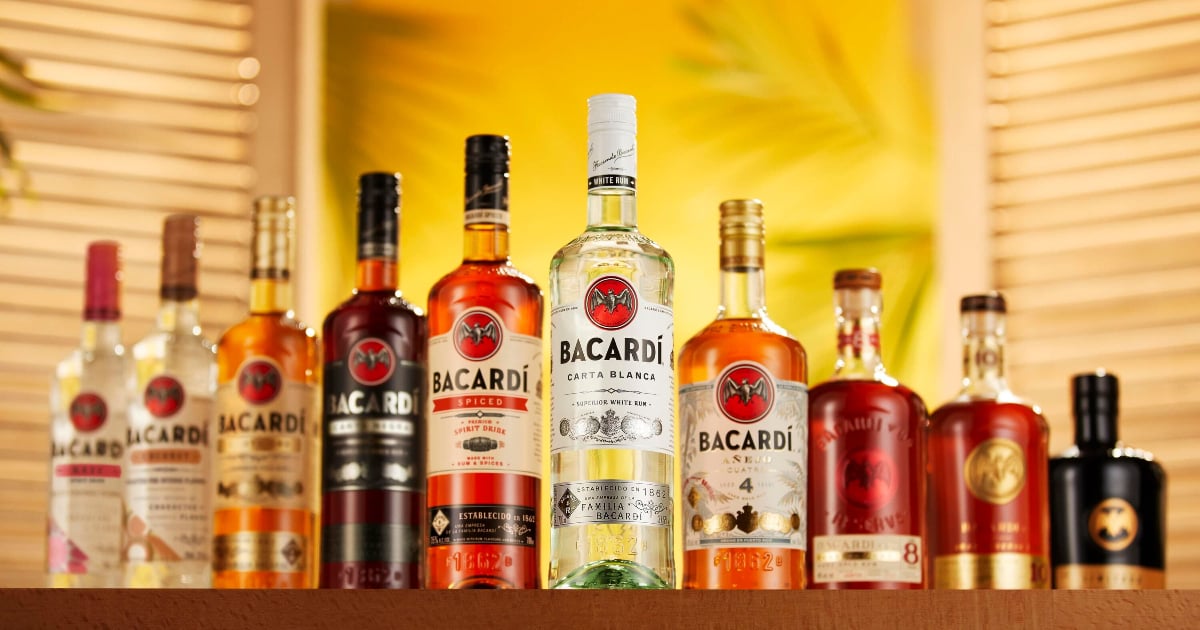Last Sunday, President Joe Biden signed the No Stolen Trademarks Honored in America Act of 2023, commonly referred to as the "Bacardi Law." This legislation aims to safeguard trademarks confiscated by the Cuban government since 1959. The law explicitly bars U.S. courts and agencies from recognizing trademarks expropriated without the original owners' consent, setting a precedent for entrepreneurs whose properties were nationalized after the so-called "Cuban revolution," as highlighted by Café Fuerte.
The White House confirmed the law's passage with substantial bipartisan support in both congressional chambers. According to the official statement, this legislation restricts the validation of trademark rights connected to confiscated assets or businesses unless the original owner or their heirs give explicit consent.
President Biden expressed gratitude to the lawmakers who championed this measure, including Darrell Issa (R) and Debbie Wasserman-Schultz (D), who introduced the bill in 2023.
Impact on the "Havana Club" Dispute
The law directly affects the ongoing legal battle over the "Havana Club" brand, a rum embroiled in disputes between Bacardi, the Cuban regime, and its French business partner Pernod Ricard. In 1995, Bacardi began selling rum under this label in the U.S. after purchasing it from the Arechabala family, the original founders. However, the Cuban government, through its state-run company Cubaexport, also claims rights to the brand, supported by Pernod Ricard.
Cubaexport initially registered the trademark in the U.S. in 1976 but faced renewal challenges due to the American embargo and restrictions imposed by the Office of Foreign Assets Control (OFAC). In 2016, the Patent and Trademark Office (PTO) renewed the license for Cubaexport, prompting Bacardi to file a lawsuit that reached the Fourth Circuit Court of Appeals in 2023, which ruled in favor of the Bermuda-based company.
With this new legislation, the PTO and other federal bodies have diminished leeway in validating trademark rights tied to confiscated properties, thereby strengthening Bacardi's stance in this conflict and potentially impacting Cuban "Havana Club" exports.
Cuban Regime's Response
The Cuban regime has strongly condemned the signing of this law, labeling it an aggressive move that violates international law. Cuban Foreign Minister Bruno Rodríguez Parrilla claimed the legislation primarily aims to strip Cubaexport of its rights to the brand. Additionally, Johana Tablada de la Torre, the director for the United States at Cuba's Ministry of Foreign Affairs, stated that the law seeks to block the renewal of the "Havana Club" trademark in the U.S., scheduled for 2026.
"Havana Club" is one of Cuba's major alcoholic beverage exports, generating significant revenue. According to AFP, it cannot currently be sold in the U.S. due to the embargo but remains a leading product in international markets, exported to over 120 countries.
Historical and Political Context
The intellectual property conflict over trademarks seized by the Cuban regime is embedded in the broader economic and political tensions between Cuba and the United States, which have intensified since the 1962 embargo. Despite hopes for relief under Biden's administration, many of the restrictions tightened during Donald Trump's presidency remain in force.
Founded in Santiago de Cuba in 1862, Bacardi symbolizes not just a historic brand but also the impact of the Cuban regime's expropriations on family businesses and foreign assets. The enactment of this law represents a victory for companies like Bacardi and a setback for the Cuban regime's aspirations to retain control over key trademarks.
Frequently Asked Questions on the Bacardi Law
What is the "Bacardi Law"?
The "Bacardi Law" refers to the No Stolen Trademarks Honored in America Act of 2023, aimed at protecting confiscated trademarks from being recognized without original owners' consent.
How does the law affect the "Havana Club" trademark?
The law limits federal agencies' ability to validate trademark rights tied to confiscated properties, strengthening Bacardi's position in the "Havana Club" dispute against the Cuban regime and Pernod Ricard.
Why is the Cuban regime opposed to this law?
The Cuban regime argues that the law is an aggressive measure violating international law, aiming to deprive Cubaexport of its trademark rights, particularly concerning the "Havana Club" brand.
